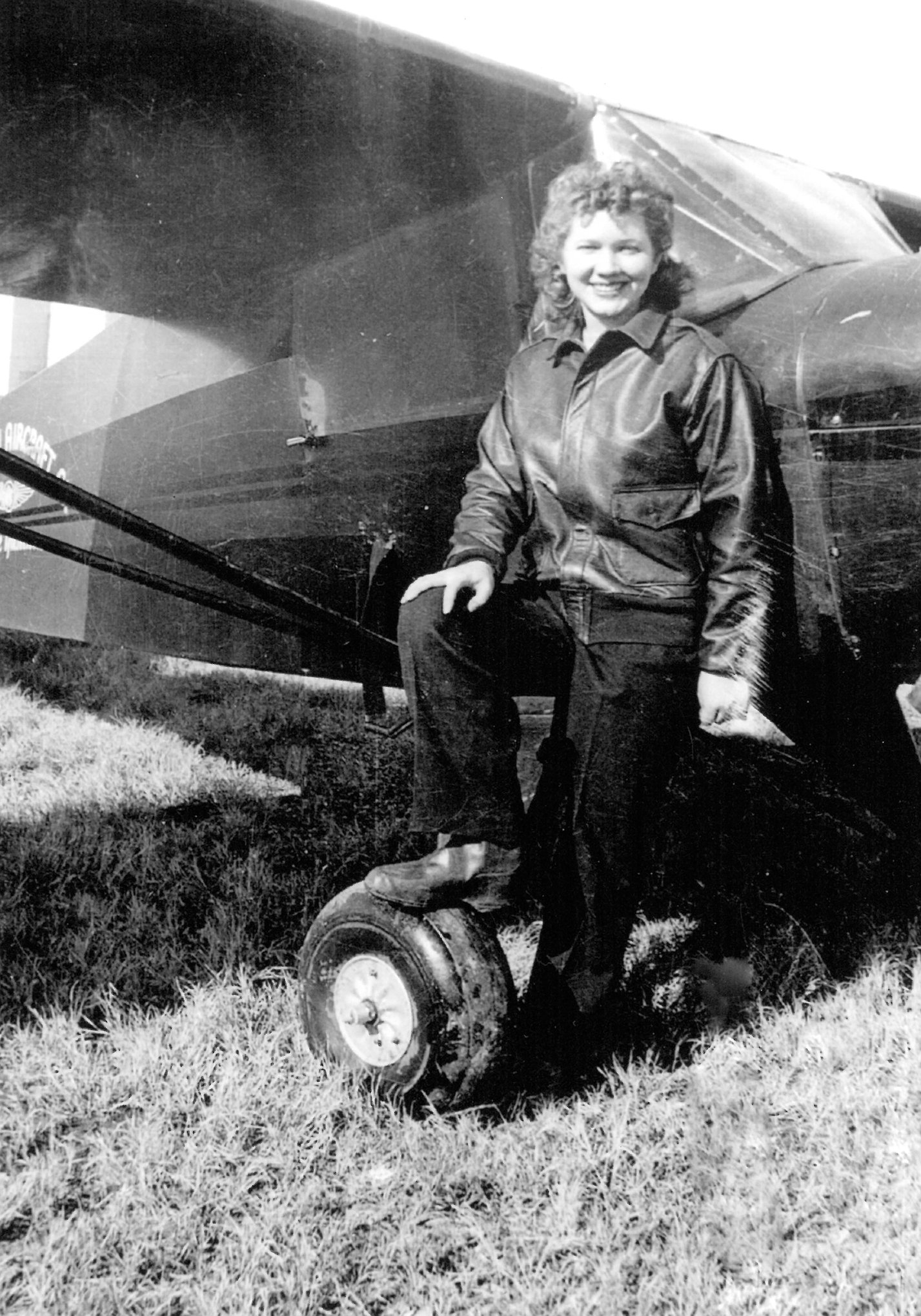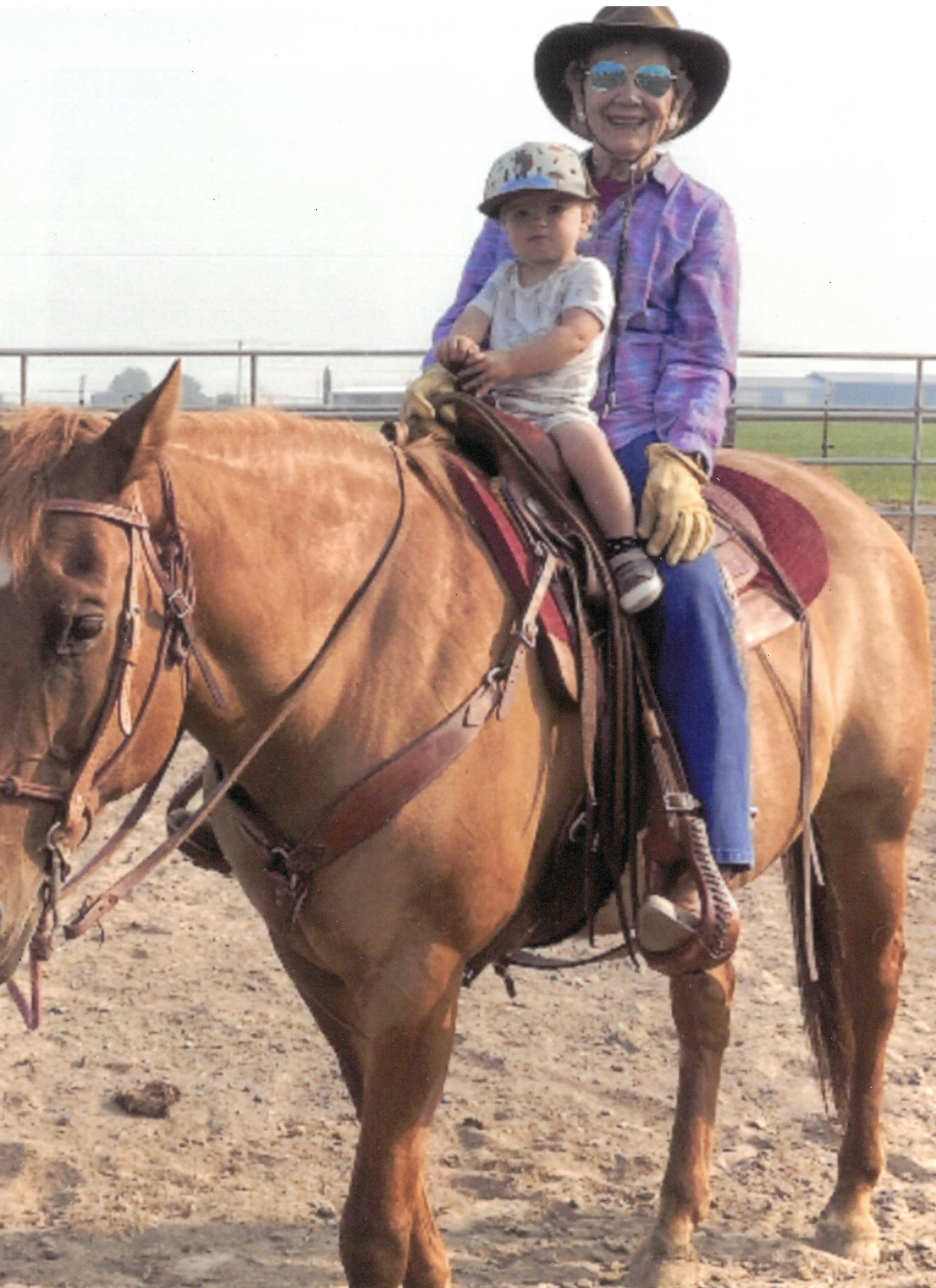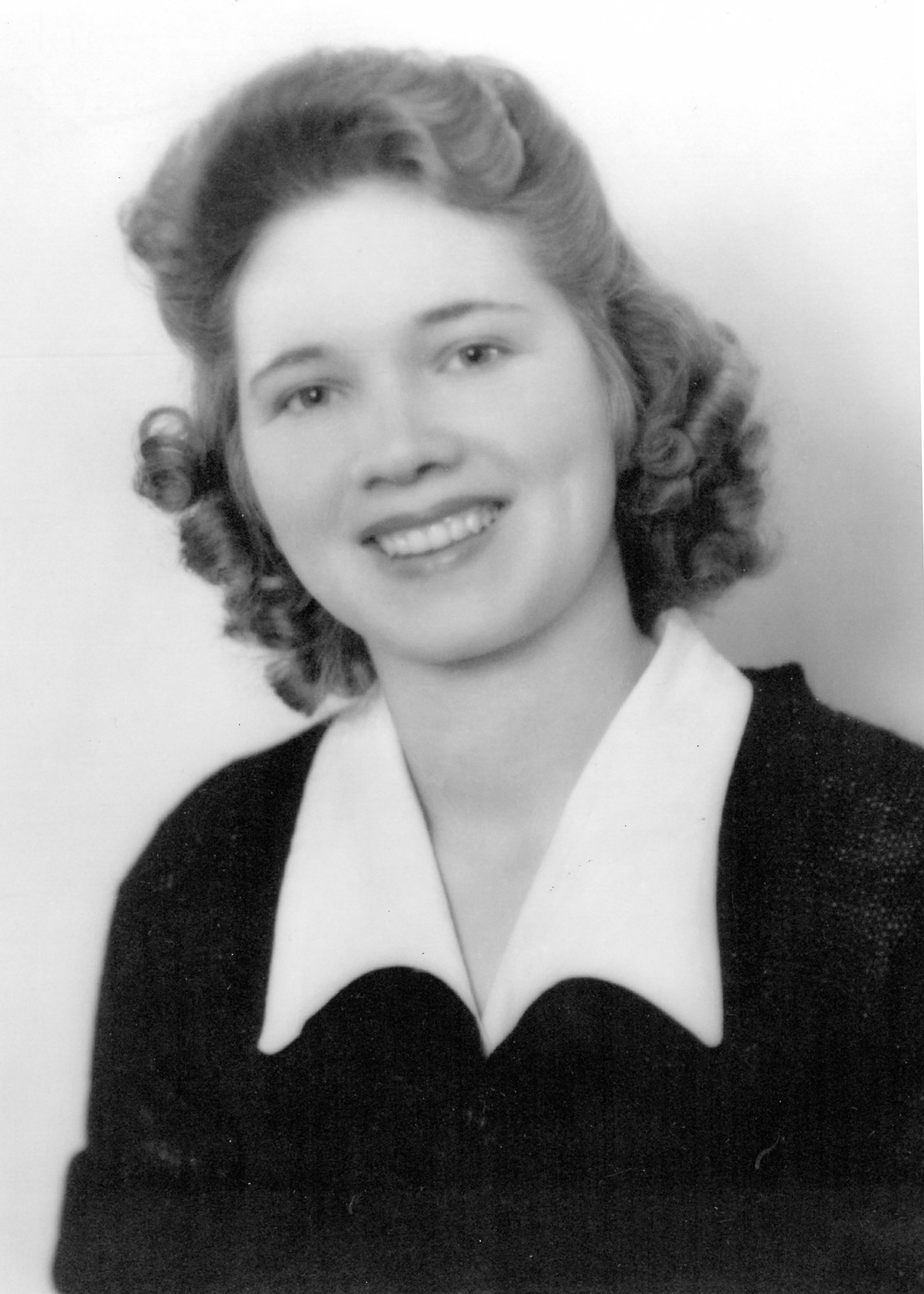'I learned to fly before I learned to drive'
JOEL MARTIN | Hagadone News Network | UPDATED 1 year AGO
Joel Martin has been with the Columbia Basin Herald for more than 25 years in a variety of roles and is the most-tenured employee in the building. Martin is a married father of eight and enjoys spending time with his children and his wife, Christina. He is passionate about the paper’s mission of informing the people of the Columbia Basin because he knows it is important to record the history of the communities the publication serves. | February 5, 2025 3:30 AM
MOSES LAKE — Betty Warnick, who turned 100 in January, has never been one to sit still, whether it was taking off cross-country for a new job or taking a plane up in the air.
“I learned to fly before I learned to drive,” she said.
Betty Vickerman was born in the little hamlet of Harrold, South Dakota, which held between 200 and 300 people at the time. Her father had come to the area to farm a homestead given to him for his service in the Marine Corps, she said. Eventually, the family moved to Rapid City, where Betty graduated from high school in 1942.
Betty was attending Black Hills Business College in Rapid City when she got word that the government was recruiting for office help at a project near Hanford, 800 miles away.
“I had two girlfriends whose father was in construction, and (that was) in demand too, so I came with them,” she said.
“Her parents weren't really happy to see her go, but she wanted to spread her wings,” said Betty’s oldest son Roy Warnick.
When she and her friends arrived, they found a dry, dusty place with a lot of security.
“Hanford at that time was like an army barracks,” she said. “We lived in dormitories and had a big mess hall. The women's quarters were separated with high fences from the men's … we really didn’t know what they were doing there. We knew it was something pretty catastrophic for the war effort, but we didn’t know it was the atom bomb.”
After three years at Hanford, Betty’s friends decided to go on to California, but Betty didn’t care to follow them.
“I had started taking flying lessons in Yakima,” she said. “I (went) over by bus, because I didn’t drive.”
Betty’s love of the skies went back to her time in Rapid City, which was near Ellsworth Air Base, she said.
“I just had a hankering to fly, I guess,” she said.
Betty was 19 when she first took up flying. Her parents found out what she was doing when she went to them for permission to solo. She needed her parents’ OK because she was under 21, she explained.
“My mother was one of my first passengers,” Betty said. “She was pretty brave to do it; it was kind of a windy day.”
While Betty was learning to fly, she met a young man named Hugh Warnick. Hugh hadn’t been able to get into the service for health reasons, Betty explained, so he went to Perry Technical Institute in Yakima, where he learned an airplane mechanic’s trade. Hugh’s family owned a guest ranch in the Wenas Valley north of Yakima, and he was learning to fly as well.
“I always had to tease him and tell him I got my license first,” Betty said.
Hugh and Betty married and settled down to run the guest ranch with Hugh’s mother and his brother Don. When his mother passed away in the early 1950s the brothers, now both married with families, had to make a decision.
“They flipped a coin to (see who would) stay, and we lost,” Betty said.
Don bought Hugh out and in 1954 Hugh and Betty used the money to establish the Credit Bureau of Central Washington, now Central Bonded Collectors. The Columbia Basin Project had just started bringing irrigation water to the area, and Moses Lake was the place to be. They started out in a small office in what was then the Lake Theater building at Third Avenue and Beech Street downtown.
“Upstairs, they had a little office where my mom and dad worked with maybe a couple of employees,” Roy said. “That's how they got started.”
Hugh continued to run the company until he retired in 1985, at which time Roy and his wife, now State Sen., Judy Warnick, took over. Meanwhile, Betty was kept busy with a growing family. Roy had been born while they had the guest ranch, he said, and another six followed the move to Moses Lake.
Two of those were born the same year, Roy said, their son Joe and their daughter Mitja, whom they had adopted.
“She was three years old in Korea, and they were closing orphanages, and Catholic Charities were trying to find people who would adopt or (act as) foster parents,” Betty said. “So we did, and she came, and she's been part of the family ever since.”
The Warnicks also acquired a pair of foster children, Ramon and Carmen, Betty said, as a result of Fidel Castro’s revolution in Cuba.
“Ramon was only 10 at the time, and they were allowed to come over if their parents gave up (their business),” Betty said. “They thought that Carmen would be able to come with them. They didn’t realize that he was coming by himself until it was time to get on the boat … It was probably a couple of years before Carmen was able to come, and she posed as the wife of one of the Bay of Pigs prisoners.”
“They still call Mom ‘Mom,’” said Betty’s daughter Lorray Warnick.
“They live in Florida now and we don’t see them as often,” Betty said. “But they’ve been part of the family ever since.”
Hugh Warnick passed away in 2011 and Betty lives just outside Moses Lake; Lorray lives with her. She uses a cane to get around, she said, but otherwise, she’s pretty mobile. She hasn’t flown for a long time, she said; it just became too expensive if you didn’t own a plane.
“Tom Dent gave me a 100th birthday card and it said, ‘One free ride,’” she said. “I’ll take him up on it one day.”
That doesn’t mean she’s been idle, though. She kept riding horses into her 90s, and her rose garden is her pride and joy.
“I got seriously interested at the (guest) ranch because we had a big garden there,” she said. “Ever since then, I’ve had a garden. I took the Master Gardener course through WSU, and we did volunteer work at the fair. We usually set up a booth and we manned the Master Gardener phone so they could call in with questions.”
“She told me this a long time ago: to always keep moving,” Roy said. “You don't want to be too stationary and just sit all the time.
ARTICLES BY JOEL MARTIN

Space Burger booth open March 13-15
MOSES LAKE — Those who can’t wait for the Grant County Fair can get their Space Burger fix next weekend, according to an announcement from the Lioness Club of Moses Lake. The iconic Grant County sandwiches will be available at the Grant County Fairgrounds March 13-15, according to the announcement. There is no admission fee to get into the fairgrounds that weekend.

SENIOR EVENTS: March 2026
COLUMBIA BASIN — Plays, art shows, auctions and more await seniors in the Columbia Basin this month. Here are some opportunities to get out and about in March.

Valentine’s Day cards flood Brookdale Hearthstone with love
MOSES LAKE — Residents at Brookdale Hearthstone Assisted Living in Moses Lake got Valentine’s Day greetings from across the country last month. “I believe that the only states we have not received (cards from) yet are Vermont and Maine,” Lifestyle Director Imelda Broyles said Feb. 24. “We keep receiving new cards every single day. They have not stopped. My residents are in awe with every single one of the cards that we’ve been receiving.” The Hearts Across America project started as a way for children in school classrooms to exchange Valentine’s Day cards with classes in other states or even countries, but the idea has expanded to senior living facilities, according to the project’s social media.







